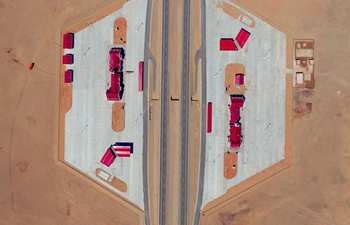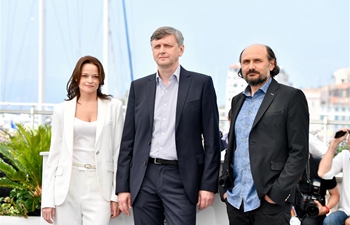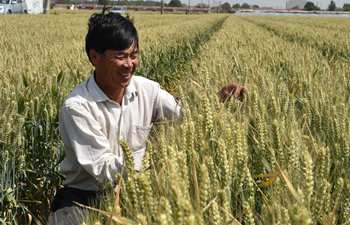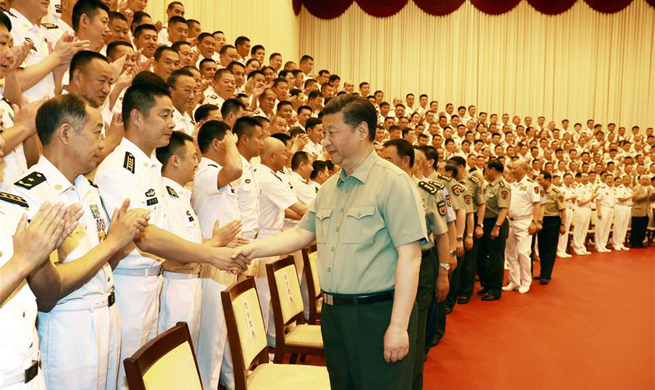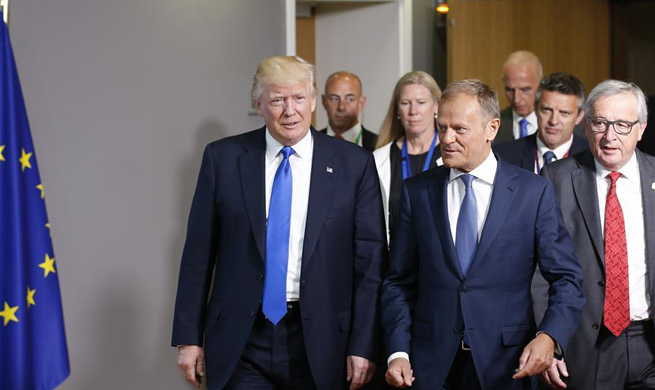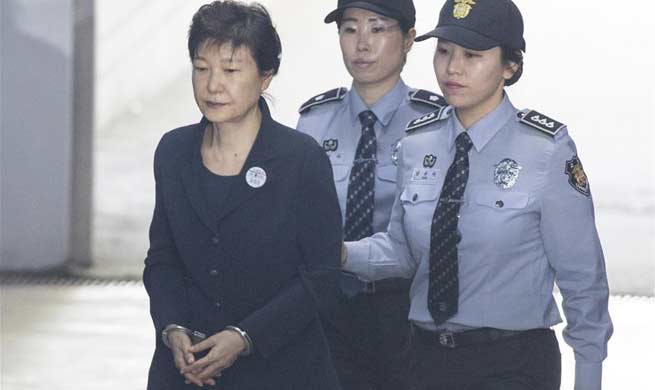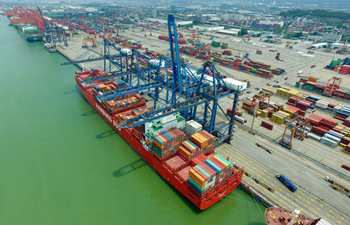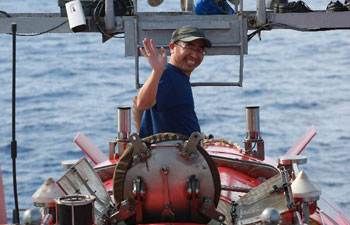BEIJING, May 25 (Xinhua) -- Visiting Iranian Deputy Foreign Minister Ebrahim Rahimpour said that Iran supports the Belt and Road Initiative, and expects to conduct practical cooperation within the initiative's framework.
"To build the Belt and Road together will not only yield win-win progress, but also contribute to regional stability," said Rahimpour in an interview with Xinhua on Wednesday.
Iran was once an important stop along the ancient Silk Road, so it currently attaches importance to strengthening regional connectivity and building the modern Belt and Road. Rahimpour said Iran is ready to take part into the initiative in such fields as economic and transport cooperation.
As six overland economic corridors have been planned within the framework of the initiative, Rahimpour said Iran is willing to explore cooperative opportunities on building economic corridors.
Iran would like to work with its cooperative partners, including China and Russia, to launch tripartite cooperation within the framework to contribute to regional stability and economic development.
With regard to China-Iran ties, he said the two sides have forged a comprehensive strategic partnership, and Iran will continue to enhance cooperation with China, in the context of Hassan Rouhani being recently re-elected as Iranian president.
"Against the backdrop that new events and developments are continuously emerging in the world, it is important for the two countries to deepen ties and map out future cooperation through closer contacts and coordination between leaders of the two countries," he said.
China is the biggest trade partner and importer for Iran. Rahimpour said the two countries have scored cooperative projects in areas such as economy, trade and energy. In April, China and Iran signed the first commercial contract to redesign Iran's Arak heavy water reactor in Vienna, demonstrating a success in bilateral cooperation.
He noted that some merchants in Iran could even accept payments from Chinese apps such as WeChat and Alipay, which showcase great potential and broad prospects for tourism and cultural cooperation.
Rahimpour said that as there are direct flights between Iran and Chinese cities of Beijing, Shanghai and Guangzhou, more and more Chinese people have traveled to Iran for tourism and business. The Iranian side will work with China to remove obstacles and facilitate people-to-people exchanges.
"Two-way trade volume has exceeded 32 billion U.S. dollars, and we expect the volume to grow in the future," Rahimpour said.
On the Iranian nuclear issue, Rahimpour said that China has played an important role in reaching and implementing the Joint Comprehensive Plan of Action (JCPOA), reached in Vienna in July 2015, between Iran and the P5+1 group, namely Britain, China, France, Russia, the United States and Germany.
Rahimpour said that so far there have been some difficulties in carrying out the JCPOA, but an individual country's stance can not affect the overall process.
"Iran is confident about the outlook of the implementation, while it believes some relevant parties share the same stance. The JCPOA is under the process of implementation, as some countries are conducting economic cooperation with Iran," he said.
He noted that if the JCPOA were suspended, it would be other countries, rather than Iran, that would suffer from the outcome.







